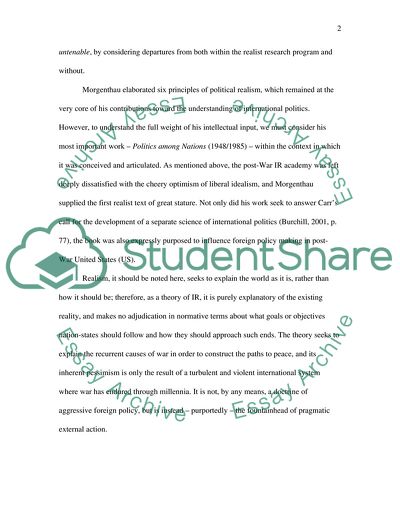Cite this document
(The rise of Neorealism as the Most Dominant Explanatory Theory of IR Research Paper, n.d.)
The rise of Neorealism as the Most Dominant Explanatory Theory of IR Research Paper. Retrieved from https://studentshare.org/politics/1719550-all-international-relations-theory-is-a-debate-between-morgenthau-and-his-critics-discuss
The rise of Neorealism as the Most Dominant Explanatory Theory of IR Research Paper. Retrieved from https://studentshare.org/politics/1719550-all-international-relations-theory-is-a-debate-between-morgenthau-and-his-critics-discuss
(The Rise of Neorealism As the Most Dominant Explanatory Theory of IR Research Paper)
The Rise of Neorealism As the Most Dominant Explanatory Theory of IR Research Paper. https://studentshare.org/politics/1719550-all-international-relations-theory-is-a-debate-between-morgenthau-and-his-critics-discuss.
The Rise of Neorealism As the Most Dominant Explanatory Theory of IR Research Paper. https://studentshare.org/politics/1719550-all-international-relations-theory-is-a-debate-between-morgenthau-and-his-critics-discuss.
“The Rise of Neorealism As the Most Dominant Explanatory Theory of IR Research Paper”, n.d. https://studentshare.org/politics/1719550-all-international-relations-theory-is-a-debate-between-morgenthau-and-his-critics-discuss.


